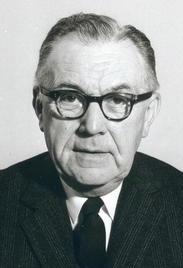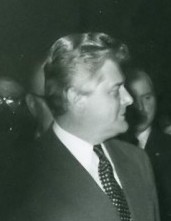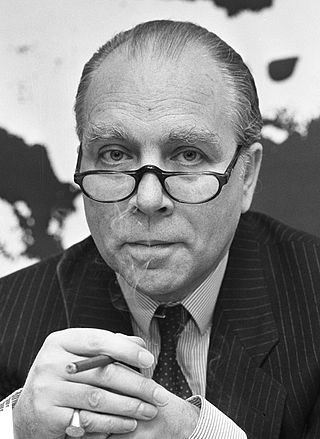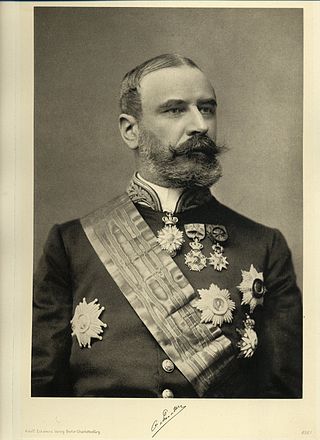
General elections were held in Belgium on 17 February 1946. The result was a victory for the Christian Social Party, which won 92 of the 202 seats in the Chamber of Representatives and 51 of the 101 seats in the Senate. Voter turnout was 90.3%.

General elections were held in Belgium on 26 June 1949. Several reforms took effect prior to the elections; they were the first after the introduction of universal women's suffrage; the number of seats in the Chamber of Representatives was increased from 202 to 212, and from now on, elections for the nine provincial councils were held simultaneously with parliamentary elections. The number of Chamber seats and the simultaneous provincial and parliamentary elections would remain unchanged until state reforms in 1993.

General elections were held in Belgium on 4 June 1950. The result was a victory for the Christian Social Party, which won 108 of the 212 seats in the Chamber of Representatives and 54 of the 106 seats in the Senate. Voter turnout was 92.6%. This election was the last one in Belgian history where a single party achieved an absolute majority. Elections for the nine provincial councils were also held.

General elections were held in Belgium on 11 April 1954. The dominant Christian Social Party won 95 of the 212 seats in the Chamber of Representatives and 49 of the 106 seats in the Senate. Voter turnout was 93.2%. Elections for the nine provincial councils were also held.

General elections were held in Belgium on 1 June 1958. The result was a victory for the Christian Social Party, which won 104 of the 212 seats in the Chamber of Representatives and 53 of the 106 seats in the Senate. Voter turnout was 93.6% in the Chamber election and 93.7% in the Senate election. Elections for the nine provincial councils were also held.

General elections were held in Belgium on 26 March 1961. The result was a victory for the Christian Social Party, which won 96 of the 212 seats in the Chamber of Representatives and 47 of the 106 seats in the Senate. Voter turnout was 92.3%. Elections for the nine provincial councils were also held.

General elections were held in Belgium on 23 May 1965. The result was a victory for the Christian Social Party, which won 77 of the 212 seats in the Chamber of Representatives and 44 of the 106 seats in the Senate. Voter turnout was 91.6%. Elections for the nine provincial councils were also held.

General elections were held in Belgium on 31 March 1968. The Christian Social Party remained the largest party. Voter turnout was 90.0%. Elections for the nine provincial councils were also held.

General elections were held in Belgium on 7 November 1971. The result was a victory for the Christian People's Party, which won 40 of the 212 seats in the Chamber of Representatives and 34 of the 106 seats in the Senate. Voter turnout was 91.5%. Elections to the nine provincial councils were also held.

General elections were held in Belgium on 10 March 1974. The Belgian Socialist Party emerged as the largest faction in the Chamber of Representatives with 59 of the 212 seats. Voter turnout was 90.3%. Elections were also held for the nine provincial councils, as well as for the Council of the German Cultural Community for the first time.

General elections were held in Belgium on 8 November 1981. Voter turnout was 94.5% in the Chamber election and 94.6% in the Senate election. Elections were also held for the nine provincial councils and for the Council of the German Cultural Community. They were the first elections after the voting age was lowered from 21 to 18. This contributed to the success of the socialist parties and the green parties.

General elections were held in Belgium on 17 December 1978. The Christian People's Party emerged as the largest party, with 57 of the 212 seats in the Chamber of Representatives and 29 of the 106 seats in the Senate. Voter turnout was 94.8%. Elections were also held for the nine provincial councils and for the Council of the German Cultural Community.
General elections were held in Belgium on 2 April 1939. The result was a victory for the Catholic Party, which won 67 of the 202 seats in the Chamber of Representatives. Voter turnout was 93.3%.

General elections were held in Belgium on 20 November 1921. The result was a victory for the Catholic Party, which won 70 of the 186 seats in the Chamber of Representatives. Voter turnout was 91.1% in the Chamber election and 91.0% in the Senate election.

General elections were held in Belgium on 5 April 1925. The result was a victory for the Belgian Labour Party, which won 78 of the 187 seats in the Chamber of Representatives. Voter turnout was 92.8% in the Chamber election and 92.7% in the Senate election.

Full general elections were held in Belgium on 14 October 1894, with run-off elections held on 21 October 1894.

Partial legislative elections were held in Belgium on 22 May 1898, with run-off elections held on 29 May. Under the alternating system, elections for the Chamber of Representatives were held in only four out of the nine provinces: Hainaut, Limburg, Liège and East Flanders. Thus, only 75 seats out of the 152 seats in the Chamber of Representatives were up for election. The Catholic Party retained their absolute majority.
Partial general elections were held in Belgium on 25 May 1902. The result was a victory for the Catholic Party, which won 54 of the 85 seats up for election in the Chamber of Representatives. Voter turnout was 95.7%.
Partial general elections were held in Belgium on 22 May 1910. The result was a victory for the Catholic Party, which won 49 of the 87 seats up for election in the Chamber of Representatives.

General elections were held in Belgium on 24 May 1936. The result was a victory for the Belgian Labour Party, which won 70 of the 202 seats in the Chamber of Representatives and 39 of the 101 seats in the Senate. Voter turnout was 94.7%.





















